Heroin addiction is a devastating problem that affects individuals and their loved ones across the country. It’s essential to recognize the signs of heroin addiction so that early intervention and support can be provided.
We will explore the physical, behavioral, and psychological signs of heroin addiction. By understanding these warning flags, we can help those in need seek the proper addiction treatment and begin their journey towards recovery.
Physical Signs of Heroin Addiction
Physical signs of heroin addiction can manifest in various ways. One of the most noticeable signs is the presence of track marks or puncture wounds on the arms or other parts of the body, where the drug is injected.
Other physical signs may include sudden weight loss, frequent flu-like symptoms, and a decline in personal hygiene. Individuals struggling with heroin addiction may also exhibit constricted pupils, drowsiness, and slurred speech.
Behavioral Signs of Heroin Addiction
The behavioral signs of heroin addiction can be alarming and may include changes in social interactions, a decline in performance at work or school, and frequent absences or tardiness.
Individuals may become secretive, withdrawing from family and friends, and isolating themselves from social activities they once enjoyed.
Financial difficulties, such as unexplained money problems or borrowing money from others, may also be indicators of heroin addiction.
Psychological Signs of Heroin Addiction
The psychological signs of heroin addiction are often more challenging to detect but equally important in identifying the problem. Individuals struggling with heroin addiction may experience extreme mood swings, irritability, and increased anxiety or depression. They may also exhibit a lack of motivation, loss of interest in previously enjoyed activities, and a decline in personal and professional responsibilities.
Dangers and Risks of Heroin Addiction
Understanding the dangers and risks associated with heroin addiction is crucial. Heroin is a highly addictive substance that can lead to severe health consequences, including respiratory depression, infections, and an increased risk of contracting bloodborne diseases. Long-term heroin use can also lead to liver and kidney damage, as well as cognitive impairments. Additionally, individuals addicted to heroin may face legal consequences due to their involvement in criminal activities to support their addiction.
Statistics and Research Findings
According to the National Institute on Drug Abuse (NIDA), in 2019, over 10,000 deaths in the United States were attributed to heroin overdose. The Substance Abuse and Mental Health Services Administration (SAMHSA) reports that in 2018, approximately 808,000 people aged 12 or older in the United States had used heroin in the past year.
These statistics highlight the urgency of addressing heroin addiction and the need for accessible addiction treatment options, such as outpatient addiction treatment and inpatient addiction rehab.
Effective resistance and refusal skills to avoid substance use
Recovery from heroin addiction is possible with the right support and treatment. It’s crucial for individuals struggling with addiction to seek professional help. Outpatient addiction treatment, such as intensive outpatient programs (IOP) and partial hospitalization programs (PHP), offer flexible options that allow individuals to receive treatment while maintaining their daily responsibilities.
Seeking Help and Treatment Options
Drug rehab centers, especially those in Connecticut, provide comprehensive addiction treatment programs that include therapy programs, mental health treatment, and evidence-based therapies to treat addiction like cognitive-behavioral therapy (CBT) and dialectical behavior therapy (DBT).
Recognizing the signs of heroin addiction is crucial in providing early intervention and support for individuals struggling with this devastating condition. By understanding the physical, behavioral, and psychological signs, we can take the necessary steps to help those in need seek the appropriate addiction treatment. Remember, recovery is possible, and there are resources and treatment options available to support individuals on their journey towards a healthier and happier life.
If you or someone you know is showing signs of heroin addiction, it’s essential to remember that help is available. Recovery is possible, and there are resources and support networks ready to assist you in your journey. Reach out to addiction rehab centers in Connecticut or explore outpatient alcohol rehab programs to find the right treatment option for your needs. Remember, you are not alone, and there is hope for a brighter future. Contact SISU today to start your journey to recovery.




